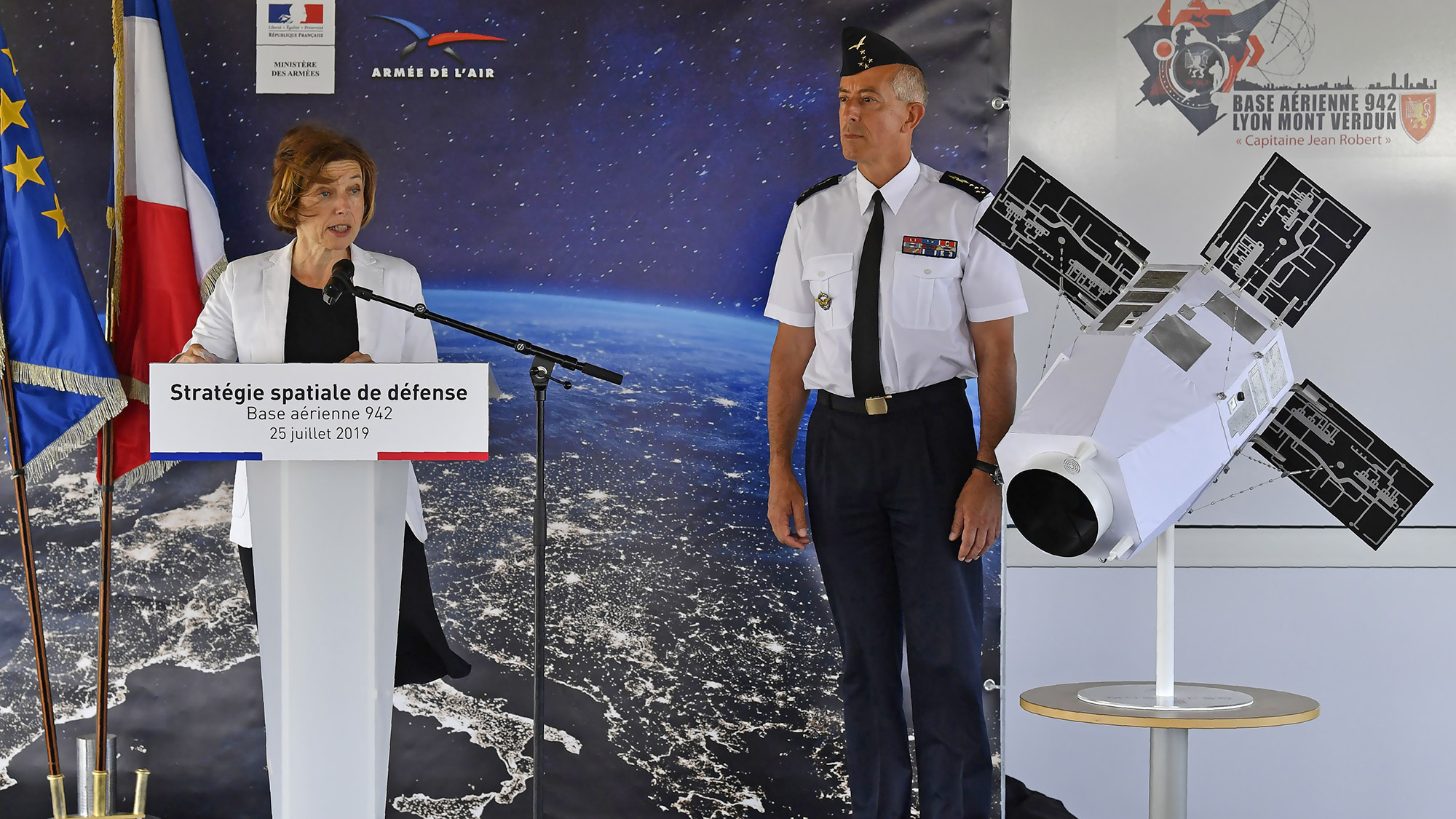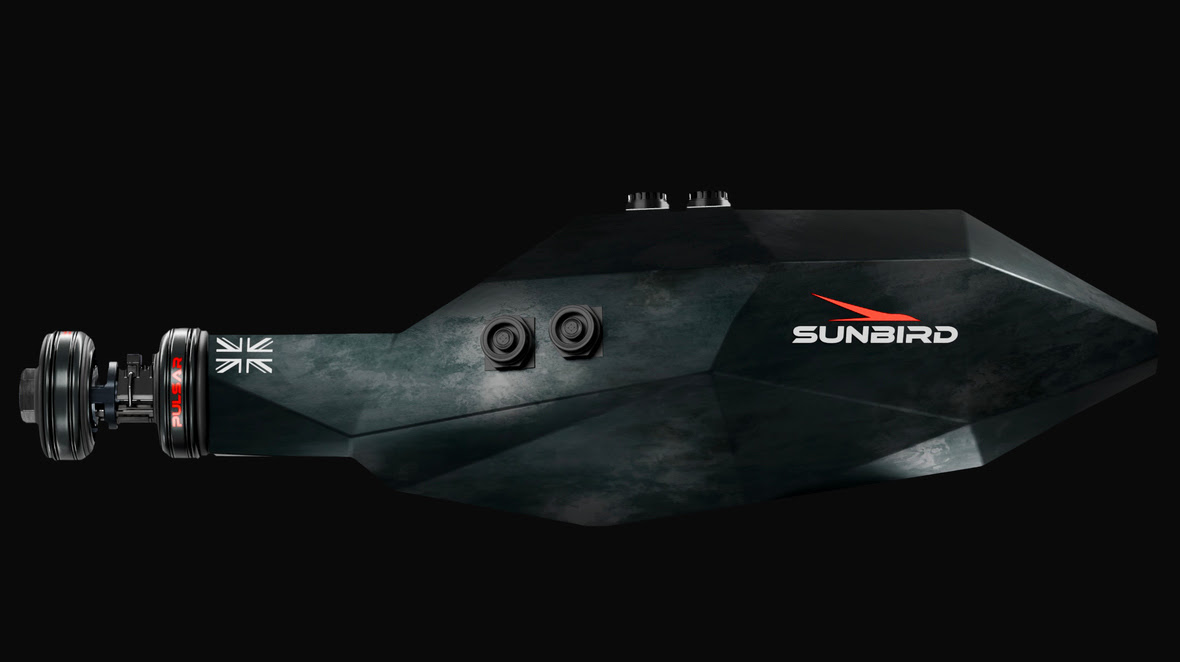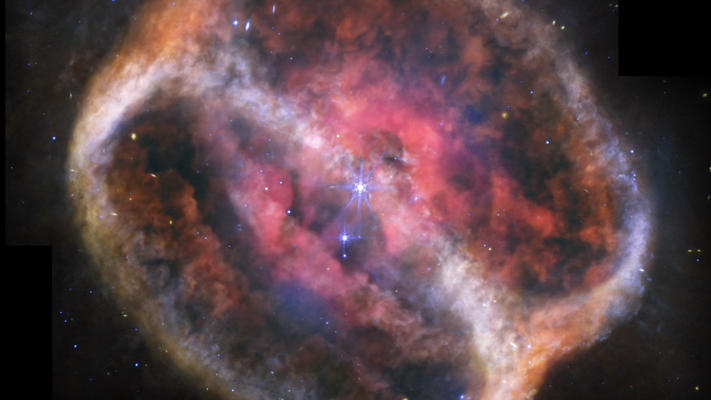France Is Launching a 'Space Force' with Weaponized Satellites
New French satellites will be equipped with machine guns and laser weapons.

Months after President Donald Trump announced the creation of the U.S. Space Force, France is beginning to lay the groundwork for its own version.
French President Emmanuel Macron announced last month that the nation's air force will establish a space command for the purpose of national defense, particularly to protect French satellites.
Last week, French Minister of Defense Florence Parly detailed the nation's plan for its new space force, which involves equipping satellites with machine guns and lasers, according to the French news weekly Le Point.
Related: The Most Dangerous Space Weapons Ever
First, the country will launch next-generation Syracuse satellites equipped with cameras that will be able to identify threats in space, such as anti-satellite weapons.
The French military currently operates a constellation of three Syracuse satellites that are primarily used for communication between the mainland and French troops deployed abroad. But after the new cameras are tried and tested, France will launch another generation of Syracuse satellites that will also be able to destroy enemy satellites.
The upgraded Syracuse satellites will be armed with either submachine guns or lasers that could disable or even destroy another satellite, according to Le Point; France aims to have those space weapons fully operational in orbit by 2030.
Get the Space.com Newsletter
Breaking space news, the latest updates on rocket launches, skywatching events and more!
While the international Outer Space Treaty prohibits the testing of weapons of mass destruction or nuclear weapons in orbit, and another United Nations treaty prohibits the weaponization of outer space, France has no intention of violating those treaties or initiating any space battles with its satellites, Parly said during a speech at Air Base 942 Lyon Mont-Verdun on July 26.
"We do not want to embark on a space arms race," Parly said. "We will conduct a reasoned arsenalization."
Parly announced that the French air force would receive an additional 700 million euros (around $780 million) in addition to its existing €3.6 billion (about $4 billion) budget for space activities between 2019 and 2025. The new space command will consist of 220 personnel from the French Air Forces' Joint Space Command, the Operational Center for Military Surveillance of Space Objects (COSMOS) and the Satellite Observation Military Center (CMOS). The space force will operate from the new Air Force Space Operations Center in Toulouse.
- Arianespace Launches Spy Satellite for France on Soyuz Rocket
- French Astronaut Throws Shade at Trump Over Withdrawal from Climate Deal
- French Cat in Space to Receive a Proper Memorial
Email Hanneke Weitering at hweitering@space.com or follow her @hannekescience. Follow us on Twitter @Spacedotcom and on Facebook.
Join our Space Forums to keep talking space on the latest missions, night sky and more! And if you have a news tip, correction or comment, let us know at: community@space.com.

Hanneke Weitering is a multimedia journalist in the Pacific Northwest reporting on the future of aviation at FutureFlight.aero and Aviation International News and was previously the Editor for Spaceflight and Astronomy news here at Space.com. As an editor with over 10 years of experience in science journalism she has previously written for Scholastic Classroom Magazines, MedPage Today and The Joint Institute for Computational Sciences at Oak Ridge National Laboratory. After studying physics at the University of Tennessee in her hometown of Knoxville, she earned her graduate degree in Science, Health and Environmental Reporting (SHERP) from New York University. Hanneke joined the Space.com team in 2016 as a staff writer and producer, covering topics including spaceflight and astronomy. She currently lives in Seattle, home of the Space Needle, with her cat and two snakes. In her spare time, Hanneke enjoys exploring the Rocky Mountains, basking in nature and looking for dark skies to gaze at the cosmos.









